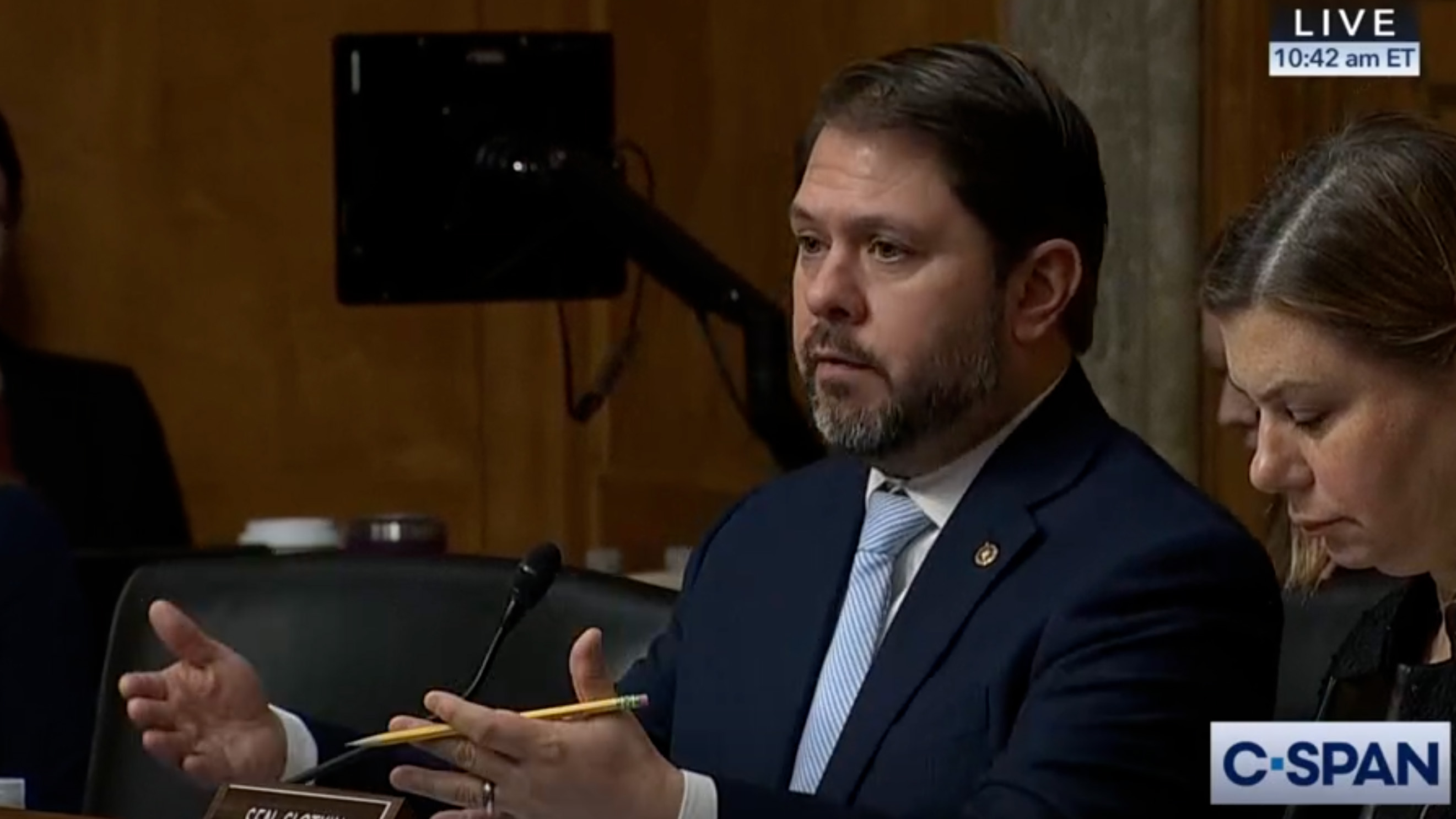 Arizona Senator Ruben Gallego questions Governor of South Dakota and nominee for Security of the Department of Homeland Security, Kristi Noem during her confirmation hearing before the Senate Committee on Homeland Security and Governmental Affairs on Friday, Jan. 17, 2024.
Arizona Senator Ruben Gallego questions Governor of South Dakota and nominee for Security of the Department of Homeland Security, Kristi Noem during her confirmation hearing before the Senate Committee on Homeland Security and Governmental Affairs on Friday, Jan. 17, 2024.
On the Friday before the inauguration, confirmation hearings continued for Trump appointees, including Kristi Noem, the nominee for Secretary of the Department of Homeland Security.
Arizona Senator Ruben Gallego questioned the Governor of South Dakota on funding challenges for small, rural border communities grappling with migrant influxes.
“As DHS Secretary, how would you ensure that border communities are not left to respond to and pay for these immigration influxes, the broken border system on their own…?” Gallego asked.
Noem responded that if confirmed, she hopes the federal government and President Trump will no longer allow what she called, “an illegal alien invasion.”
She added that Arizona communities would no longer face the burden of dealing with individuals without legal status.
She also proposed redirecting FEMA’s Shelter and Services Program (SSP), which provides financial support to non-federal entities providing shelter to non-citizen migrants, back to its intended use.
According to FEMA, “The intent is to support [U.S. Customs and Border Protection] in the safe, orderly and humane release of noncitizen migrants from short-term holding facilities.”
Gallego also pressed Noem on her plans for working with tribal communities to balance national security needs with tribal sovereignty.
Noem cited her experience addressing public safety issues in South Dakota.
“I offered to train federal law enforcement officers, [Bureau of Indian Affairs] officers, but also their tribal police in South Dakota at no cost to our tribes and it’s been an incredible, powerful tool that we’ve had to build relationships,” she said.
Noem added that she would like to expand on the Shadow Wolves training program that Gallego had mentioned prior to his question–a tactical patrol unit made up of members of the Tohono O'odham Nation who specialize in intercepting human and drug smugglers.
The senator then raised concerns about Trump’s mass deportation strategy.
“Talking to my agricultural community, my dairy community, they have concerns that this approach will lead to workforce shortages that will further drive up the costs of everything,” Gallego said.
“President Trump has been very clear that this priority is going to be deporting criminals, those who have broken our laws and perpetuated violence in our communities,” Noem said. “Having over 425,000 of those with criminal convictions in our country, that will be a focus that we need to tackle right away.”
She added that the next step would involve implementing final removal orders, prioritizing individuals who have overstayed and ignored federal laws.

By submitting your comments, you hereby give AZPM the right to post your comments and potentially use them in any other form of media operated by this institution.